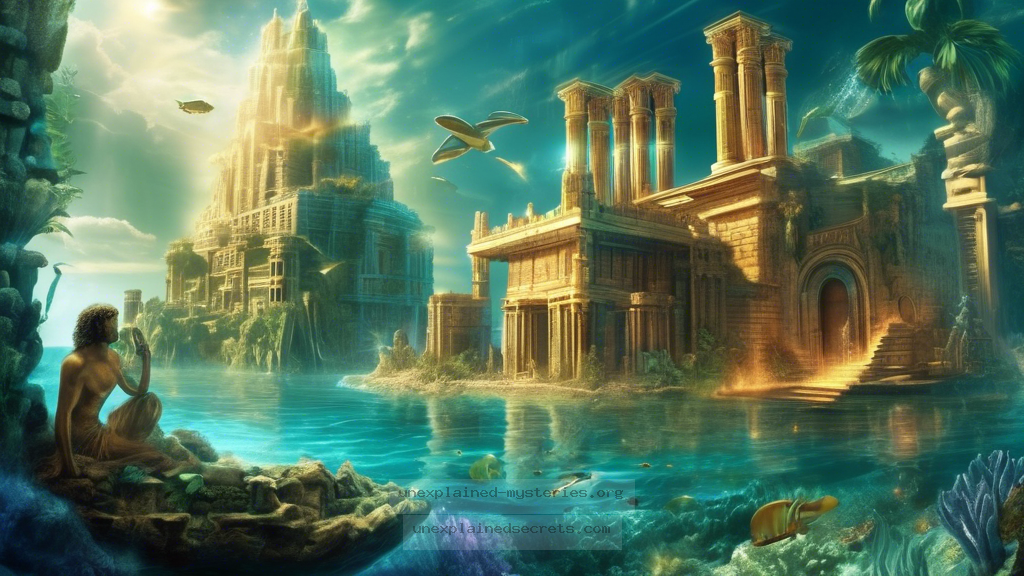What Happened to the Lost City of Atlantis: A Mystery That Still Captivates?
What Happened to the Lost City of Atlantis: A Mystery That Still Captivates?
The legend of Atlantis has fascinated scholars, adventurers, and mystery enthusiasts for centuries. This supposedly advanced civilization, described by the philosopher Plato, has sparked countless theories and explorations. But what lies at the heart of this enigma? Why does the question of Atlantis’s existence continue to captivate our imaginations? In this post, we will delve into the historical context, core theories, practical evidence, and the ongoing quest for understanding regarding this ancient mystery.
Historical Context of Atlantis
The story of Atlantis first appeared in Plato’s dialogues, “Timaeus” and “Critias,” written around 360 B.C. He described Atlantis as a powerful and advanced civilization that existed around 9,000 years before his time, situated beyond the “Pillars of Hercules,” commonly identified as the Strait of Gibraltar. According to Plato, Atlantis was a utopia filled with beautiful architecture, advanced technology, and a society governed by wise leaders. However, due to moral decay and hubris, Atlantis supposedly fell out of favor with the gods and sank into the ocean.
For many historians, the question is not just whether Atlantis existed, but why Plato chose to create such a tale. Some suggest that Atlantis was a fictional allegory used to convey moral lessons about pride and the consequences of straying from virtuous behavior. Others argue that Plato might have been referencing a real civilization that had already existed, thus blending fact with fiction.
Core Concepts and Theories Surrounding Atlantis
Over the years, numerous theories have emerged regarding the possible location and nature of Atlantis. Some of the most prominent include:
- Location Theories: Hypotheses range from the Mediterranean (Santorini, Crete) to the Caribbean (Cuba) and even Antarctica.
- Historical Parallels: Some researchers draw parallels between Atlantis and the Minoan civilization, which experienced a catastrophic volcanic eruption on Santorini around 1600 B.C.
- Geological Evidence: Theories about catastrophic events, such as tsunamis and earthquakes, that could have led to the sinking of a landmass.
Each theory presents its own set of compelling evidence, yet none have conclusively proven the existence of Atlantis. The lack of definitive archaeological findings continues to fuel the debate.
Practical Evidence and Archaeological Findings
While Atlantis remains elusive, several archaeological discoveries have provided tantalizing clues that may correlate with the legend. The Minoan civilization on Crete, known for its advanced culture and sudden decline due to the eruption of the Thera volcano, has often been cited as a potential inspiration for Plato.
Additionally, the discovery of underwater structures near the Bahamas, often referred to as the “Bimini Road,” has generated excitement among proponents of the Atlantis theory. While mainstream archaeologists suggest these formations are natural, some argue they exhibit characteristics of human construction. However, rigorous scientific studies have yet to validate these claims.
Alternative Perspectives: Skepticism and Criticism
Not all scholars embrace the idea of Atlantis as a lost civilization. Many view it as a cautionary tale rather than a historical account. For instance, historian and philosopher Aristotle dismissed Plato’s account as mere fiction. Modern skeptics often point to the lack of physical evidence and argue that the story serves more as a philosophical discourse than a historical narrative.
Furthermore, some researchers suggest that the obsession with Atlantis stems from a desire to find a lost golden age of civilization. This longing for a utopian past can cloud objective analysis and lead to the proliferation of pseudoarchaeology.
Common Misconceptions about Atlantis
As with many ancient mysteries, several misconceptions about Atlantis persist:
- Atlantis Was a Single Location: Many assume Atlantis refers to one place, but Plato’s description suggests a civilization comprised of multiple islands.
- Atlantis Was Inherently Evil: While the narrative highlights moral decline, it also emphasizes the civilization’s initial virtues.
- All Theories Are Equally Credible: Not all proposed locations are equally supported by evidence; critical evaluation is essential.
Best Practices for Investigating Ancient Mysteries
For those intrigued by Atlantis and similar mysteries, here are some best practices for investigation:
- Research Thoroughly: Engage with reputable sources, including archaeological journals and historical texts.
- Be Open-Minded: Remain receptive to new ideas and interpretations while applying critical thinking.
- Join Academic Discussions: Participate in forums or conferences to engage with experts and fellow enthusiasts.
Additionally, following ongoing excavations and research can provide updated insights into the mystery of Atlantis and related archaeological endeavors.
Future Developments in Atlantis Research
As technology advances, so do the methods for exploring ancient mysteries. Underwater archaeology, remote sensing, and advanced imaging techniques are revolutionizing how we investigate submerged landscapes. Projects like Global Underwater Explorations are using sonar mapping to identify potential sites of interest that may correlate with Atlantis.
Moreover, the continued interest in the field may lead to new discoveries that could either validate or refute long-held beliefs about Atlantis. As researchers delve deeper into the seas and ancient texts, the possibility of uncovering evidence or redefining our understanding remains tantalizingly alive.
Conclusion: The Enduring Enigma of Atlantis
The story of Atlantis continues to be a potent symbol of humanity’s search for knowledge and understanding. Whether it is a cautionary tale, a historical account, or a blend of both, the mystery surrounding Atlantis speaks to our collective curiosity and desire to uncover the past. By examining the historical context, exploring various theories, and engaging in critical discourse, we can gain a richer appreciation for this ancient enigma and its implications for our understanding of lost civilizations.
Other Articles
Recent Posts
- What Happened to Flight MH370? The Conspiracy Theories That Still Haunt Us
- What Secrets Lurk Within the Walls of the Infamous Trans-Allegheny Lunatic Asylum?
- What Evidence Supports the Existence of Bigfoot in the Pacific Northwest?
- What Happened to the Indus Valley Civilization? Unraveling the Mysteries of Ancient Urban Life
- Can Telepathy Be Scientifically Proven Through Laboratory Evidence?







